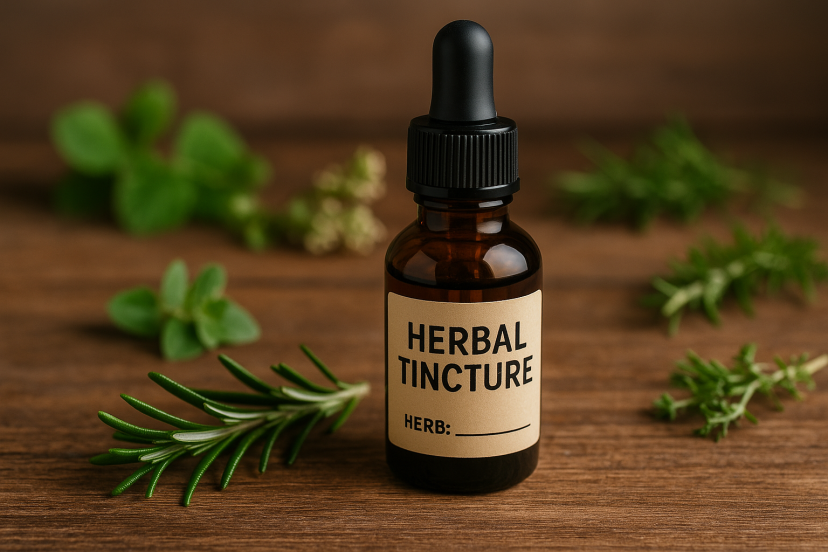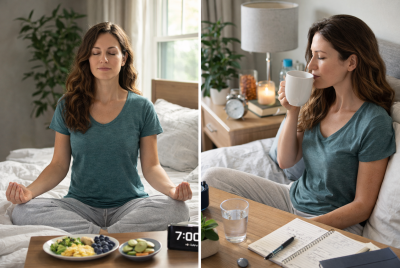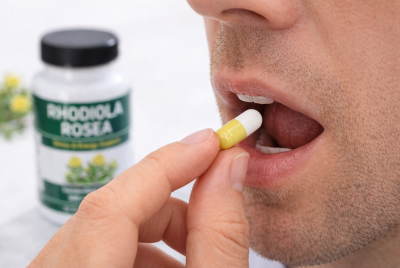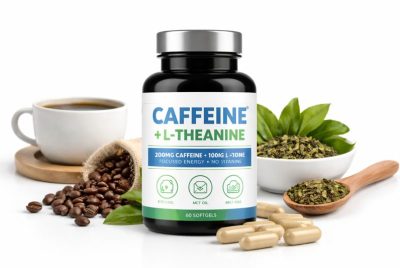5 Homemade Herbal Tinctures To Boost Your Memory And Brain Power
We may earn a commission for purchases made using our links. Please see our disclosure for more details.
Have you ever struggled to concentrate on a simple task or forgotten why you entered a room? We often deal with brain fog and poor attention as a result of stress, distractions, and information overload. Coffee rarely promotes long-term clarity, even though it could provide a short-term boost. Herbal tinctures excel in this situation. These concentrated plant extracts provide a safe, all-natural method of enhancing focus, memory, and brain health. This article will teach you how to produce five potent tinctures for cognitive assistance at home.
What Are Herbal Tinctures and How Do They Work?
A tincture is essentially a herbal extract created by soaking plant material in alcohol (or sometimes glycerin) to extract the active ingredients. The alcohol serves as both a preservative and a solvent, allowing tinctures to keep for years while remaining very effective.
Here’s why people love tinctures:
- Fast absorption: A few drops under the tongue enter the bloodstream quickly.
- Concentrated formula: Stronger than teas or capsules.
- Easy dosing: Just a dropperful at a time.
- Long shelf life: Tinctures made with alcohol can stay potent for as long as five years.
When it comes to cognitive health, tinctures offer a convenient way to tap into centuries of traditional wisdom and modern science at the same time.

5 Powerful Memory-Boosting Herbal Tinctures
1. Ginkgo Biloba Tincture
Why it works: Ginkgo is one of the most widely studied herbs for memory. It increases blood circulation to the brain, ensuring oxygen and nutrients reach your neurons efficiently. That boost in circulation may improve memory, alertness, and even protect against age-related cognitive decline.
How to use: 15–30 drops, one to two times daily.
Scientific Support: A study in Frontiers in Aging Neuroscience (2019) found that Ginkgo supplementation improved memory and executive function in older adults.
2. Gotu Kola Tincture
Why it works: Known in Ayurveda as “the herb of longevity,” Gotu Kola helps stimulate nerve growth and supports healthy brain cell communication. It boosts focus and reduces mental fatigue, making it perfect for students and professionals.
Best time to take: Morning or midday, since it has an energizing yet calming effect.
Evidence: Research in Evidence-Based Complementary and Alternative Medicine shows Gotu Kola can enhance memory retention and reduce anxiety.
3. Bacopa Monnieri Tincture
Why it works: Bacopa has been a staple in Ayurvedic medicine for centuries, often called “Brahmi” for its brain-enhancing powers. It improves memory recall, supports learning, and lowers stress levels.
How to use: Start small—about 10 drops daily—because it’s very potent. You can increase slowly as your body adjusts.
Science: A 2016 meta-analysis in The Journal of Ethnopharmacology confirmed that Bacopa significantly improved memory and learning outcomes in adults.
4. Rosemary Tincture
Why it works: Rosemary isn’t just for roasted potatoes. This aromatic herb contains compounds that increase acetylcholine, a neurotransmitter essential for memory and focus.
Extra benefit: Rosemary’s antioxidants may also protect the brain from oxidative damage linked to aging.
Fun fact: A study in the UK showed that simply inhaling rosemary aroma improved memory recall. Imagine the power of taking it as a tincture!
5. Ashwagandha Tincture
Why it works: Ashwagandha is an adaptogen, which means it helps your body manage stress. Since stress is one of the biggest killers of focus and memory, calming the nervous system is crucial. Ashwagandha also supports long-term brain health and resilience.
When to take it: Evening or before bed, since it has a calming effect.
Study: A 2021 paper in Cureus reported that Ashwagandha supplementation improved memory, processing speed, and executive function in adults under chronic stress.
How To Make Your Own Herbal Tinctures at Home
Making tinctures might sound intimidating, but it’s easier than you think. Here’s a simple method:
You’ll need:
- A glass jar with a tight lid
- Fresh or dried herbs
- 80–100 proof vodka (or glycerin for an alcohol-free option)
- Cheesecloth or fine strainer
- Amber glass dropper bottles
Steps:
- Fill the jar halfway with herbs.
- Pour in enough alcohol to fully cover the herbs.
- Keep the jar sealed and store it in a cool, dark spot.
- Give it a gentle shake once a day for about four to six weeks.
- Strain through cheesecloth and pour into dropper bottles.
- Write the date and herb name on the label.
Tip: Alcohol-based tinctures last years, while glycerin-based ones usually last about a year.
Best Ready-Made Herbal Tinctures on Amazon
Don’t have time to make your own? These trusted options are highly rated and convenient:
| Product | Why It’s Great | View Product |
| Herb Pharm Ginkgo Biloba Liquid Extract | Certified organic and non-GMO; supports circulation and memory; trusted U.S. brand with decades of herbal expertise. | View Product |
| Banyan Botanicals Bacopa Extract | USDA Organic, Ayurvedic formula for learning, recall, and concentration; sustainably sourced. | View Product |
| Nature’s Answer Gotu Kola Extract | Alcohol-free, fast absorption; reduces mental fatigue and supports clear focus. | View Product |
| MaryRuth Organics Ashwagandha Drops | Vegan, gluten-free, non-GMO; helps with stress relief and long-term brain support. | View Product |
| HawaiiPharm Rosemary Liquid Extract | High-strength rosemary tincture made in the USA; supports memory, concentration, and antioxidant defense. | View Product |

What Research Reveals About Memory-Boosting Herbs
Modern research continues to confirm what traditional medicine has known for centuries: certain herbs can genuinely support memory and brain health. For instance, a 2014 meta-analysis of randomized trials on Bacopa monnieri and cognition concluded that Bacopa supplementation significantly improved memory recall, information processing speed, and overall cognitive performance, especially when taken consistently over several weeks. This aligns with its long history of use in Ayurveda as a “brain tonic.” Similarly, a 2021 randomized, double-blind, placebo-controlled trial of ashwagandha in stressed adults showed that daily use not only enhanced memory and focus but also lowered stress levels and improved sleep quality—two factors closely tied to mental performance. Together, these findings highlight how herbal tinctures such as Bacopa and Ashwagandha aren’t just old remedies—they are scientifically validated tools that can help sharpen your mind, protect long-term brain health, and support daily focus in a natural way. Want even more options for brain health? Take a look at the Top Nootropic Supplements for 2025 for a science-backed list of natural enhancers.
Common Mistakes to Avoid
- Taking too much too soon
- Mixing too many herbs at once
- Expecting instant results (some herbs need weeks)
- Buying low-quality or unlabeled tinctures
- Skipping consistency—daily use matters
Final Thoughts
Herbal tinctures aren’t miracle cures, but they are powerful allies for better memory and focus. Whether you make your own or purchase ready-made options, these five herbs—Ginkgo, Gotu Kola, Bacopa, Rosemary, and Ashwagandha—can bring more clarity and sharpness to your daily life. Start small, be patient, and notice how your mind feels after a few weeks. Nature has always had solutions—sometimes, you just need a dropper bottle to access them.
FAQs
1. How long will herbal tinctures take to start working?
Some, like rosemary, work within minutes. Others, such as Bacopa, need 2–4 weeks of consistent use.
2. Are tinctures safe for daily use?
Yes, when used as directed. Always check for medication interactions or pregnancy concerns.
3. Can I combine different tinctures?
Yes, but start with one herb and slowly add others to see how your body responds.
4. When’s the best time to take them?
Morning for energizing herbs like Gotu Kola, evening for calming herbs like Ashwagandha.
5. Do tinctures lose potency?
Alcohol-based tinctures last up to 5 years if stored properly in a cool, dark place.




